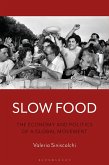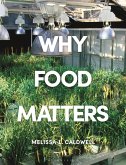Who controls what we eat? This book reveals how dominant corporations, from the supermarket to the seed industry, exert control over contemporary food systems. It analyzes the strategies these firms are using to reshape society in order to further increase their power, particularly in terms of their bearing upon the more vulnerable sections of society, such as recent immigrants, ethnic minorities and those of lower socioeconomic status. Yet this study also shows that these trends are not inevitable. Opposed by numerous efforts, from microbreweries to seed saving networks, it explores how opposition to this has encouraged even the most powerful firms to make small but positive changes.
This revised edition has been updated to reflect recent developments in the food system, as well as the broad political economic forces that shape them. It also examines the rapidly changing technologies, such as Big Data and automation, which have the potential to reinforce, as well as to challenge, the power of the largest firms.
This revised edition has been updated to reflect recent developments in the food system, as well as the broad political economic forces that shape them. It also examines the rapidly changing technologies, such as Big Data and automation, which have the potential to reinforce, as well as to challenge, the power of the largest firms.









